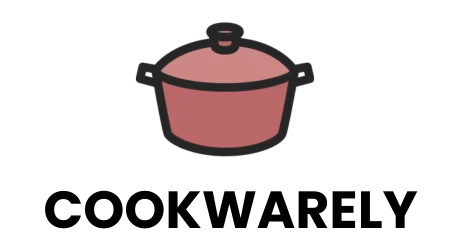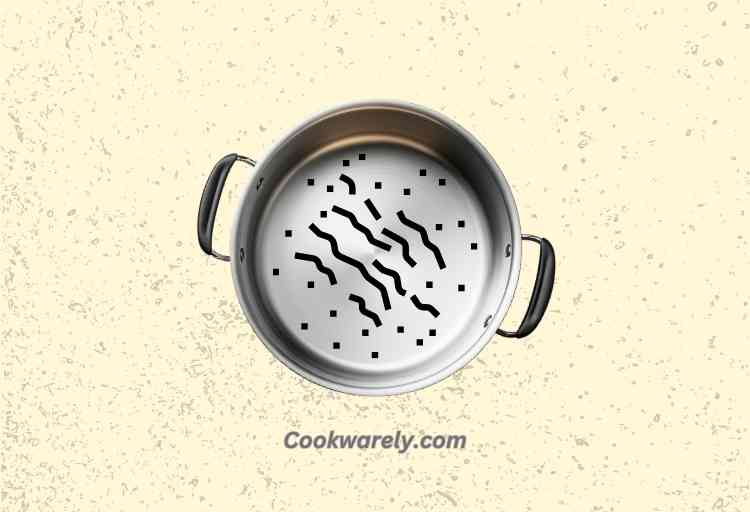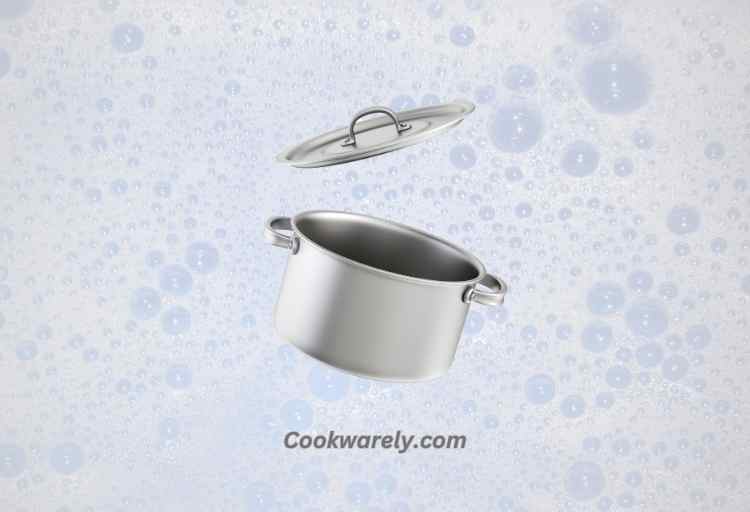Are woks dishwasher safe? Find Out Here!
Woks are essential cookware in many kitchens, known for their versatility in stir-frying, deep-frying, and steaming. However, as our lives become busier, the allure of dishwashers for quick and easy cleanup is undeniable.
Woks are generally not dishwasher safe. The high-intensity water jets and detergents in dishwashers can damage seasoning on carbon steel and cast iron woks and erode non-stick coatings on others. Hand-washing is recommended to preserve wok longevity.
Woks are typically not suitable for dishwashers due to the potential for damage caused by high-intensity water and detergents.
- Hand-washing is preferred to maintain the seasoning on carbon steel and cast iron woks, which enhances their non-stick properties.
- Dishwashers can erode non-stick coatings on some woks, reducing their effectiveness over time.
- Professional chefs and wok experts recommend gentle hand-washing for optimal wok care and longevity.
4 Aspects About Dishwasher and Hand-washing Woks Dishwasher Safe
| Aspect | Dishwasher Use | Hand-Washing |
|---|---|---|
| Suitability | Generally Not Suitable | Recommended |
| Seasoning Preservation | Damages Seasoning | Preserves Seasoning |
| Non-Stick Coating | Erodes Coating | Maintains Coating |
| Expert Recommendation | Discouraged | Recommended by Experts |

Understanding Woks
Wok Materials
Woks come in various materials, each with its own unique characteristics:
- Carbon Steel Woks: These are the most common and versatile woks. They develop a natural non-stick patina over time.
- Cast Iron Woks: Known for their durability and excellent heat retention. They require seasoning to maintain their non-stick properties.
- Non-Stick Woks: These woks have a non-stick coating, which makes them easy to clean but may require more delicate handling.
Wok Construction
The shape, handles, and coatings of woks also vary:
- Traditional Shape: Woks have a deep, rounded bottom that allows for even heating and efficient tossing of ingredients.
- Handles: Some woks have one long handle, while others feature two small handles. Choose the type that suits your cooking style.
- Coatings: Non-stick woks have a layer of non-stick material that requires gentle care to prevent damage.
The Dishwasher Dilemma
Why Use Dishwashers for Woks?
Dishwashers are a modern convenience, and it’s tempting to use them for all kitchenware, including woks. Here’s why some people consider it:
- Convenience: Dishwashers save time and effort in cleaning up after a meal.
- Uniform Cleaning: Dishwashers offer a consistent and thorough cleaning process.
Risks and Issues
However, the reality is that most woks are not designed for dishwasher use, and there are significant risks involved:
- Damage: The high-intensity water jets and abrasive detergents in dishwashers can damage the delicate seasoning of carbon steel and cast iron woks.
- Non-Stick Coatings: Dishwasher use can wear down the non-stick coating on some woks, rendering them less effective.
Are Woks Dishwasher Safe?
Manufacturer Recommendations
Many wok manufacturers explicitly state that their woks are not dishwasher safe. It’s crucial to heed these recommendations to avoid potential damage.
Reasons Why Most Woks Aren’t Dishwasher Safe
- Seasoning Preservation: Carbon steel and cast iron woks develop a non-stick patina over time, and dishwasher use can strip away this seasoning.
- Non-Stick Coatings: Dishwasher detergents and high heat can degrade the non-stick properties of coated woks.
Risks and Consequences: Dishwasher Damage
If you disregard the manufacturer’s advice and place your wok in the dishwasher, you risk:
- Rust: Dishwashers can strip away the protective layer of seasoning, leading to rust formation on carbon steel and cast iron woks.
- Non-Stick Erosion: Non-stick coatings can deteriorate, reducing their effectiveness.
Proper Wok Care
Alternative Cleaning Methods
To ensure the longevity of your wok, it’s best to avoid dishwashers and follow these steps:
- Hand-Washing: Gently scrub your wok with warm water and a sponge or wok brush immediately after use.
- Proper Drying: Always dry your wok completely before storing it to prevent rust.
Emphasizing Hand-Washing
Hand-washing is the safest and most effective way to clean your wok. Here’s why:
- Preservation of Patina: Hand-washing helps maintain the seasoning or patina on carbon steel and cast iron woks.
- Non-Stick Longevity: Gentle hand-washing prolongs the life of non-stick coatings.
Expert Opinions
Chef Insights
Professional chefs and wok experts unanimously recommend hand washing woks:
- Preservation of Flavor: Hand-washing helps preserve the unique flavors and aromas developed in a well-seasoned wok.
- Texture Maintenance: The patina in carbon steel and cast iron woks contributes to the perfect texture of stir-fried dishes.
FAQ Section
Can I Use Mild Dish Soap for Wok Cleaning?
Yes, mild dish soap is acceptable if your wok is exceptionally greasy or has been used for meats, seafood, or thick sauces. However, it’s generally not necessary for regular cleaning.
Can I Damage My Wok with Cleaning and Soap?
While regular washing is essential for a non-stick patina, avoid abrasive scouring pads and be cautious with vinegar-y sauces and acidic ingredients to prevent damage.
Where Should I Store My Wok?
Store your wok in a dry place, just like your other pots and pans. Avoid damp storage areas to prevent rust and oxidation.
Conclusion
Finally, woks are invaluable kitchen tools that require specific care to maintain their performance. When it comes to the question, “Are woks dishwasher safe?” the answer is a resounding no for most wok types.
To preserve your wok’s seasoning, non-stick properties, and overall quality, it’s best to stick to hand-washing and proper drying techniques.
Your wok will reward you with delicious, flavorful dishes for years to come if you give it the care it deserves.






